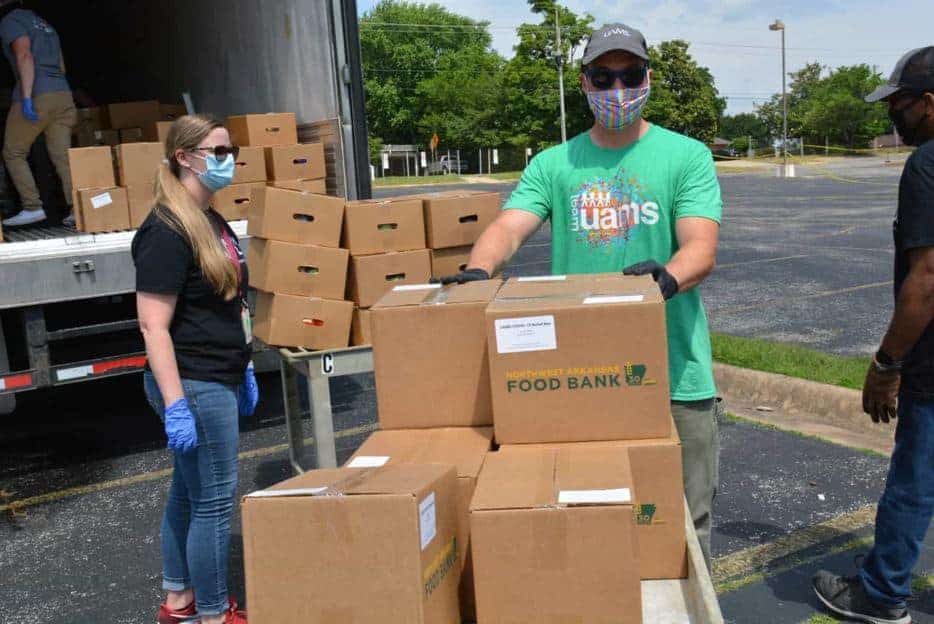NIH Funds $2.5 Million UAMS Study of Healthy-Food Delivery to Combat Diabetes in Rural Arkansas
| LITTLE ROCK — A first-of-its-kind study by UAMS will test whether deliveries of healthy food, along with recipes and education materials, can help reduce type 2 diabetes among food-insecure rural Arkansans.
The National Institute of Nursing Research at the National Institutes of Health (NIH) is funding the five-year, $2.5 million study by researchers at the UAMS Northwest Regional Campus. Chris Long, Ph.D., is the study’s principal investigator.
“Our long-term goal is to transform rural residents’ management of type 2 diabetes,” said Long, senior director of Research and Evaluation in the Office of Community Health & Research at the UAMS Northwest Regional Campus.
The study builds on research that has shown the potential for home food delivery in improving glycemic control (blood sugar levels), diabetes distress, self-reported diabetes management, and food security.
“We will test this approach to find out whether home delivery helps rural participants stay on track with a healthier diet and whether it is scalable, sustainable, and cost-effective” said Lauren Haggard-Duff, Ph.D., RN, one of four co-investigators. She is based at the Northwest Regional Campus and is a clinical assistant professor in the UAMS College of Nursing.
The deliveries will include evidence-based educational materials and recipes to help control blood sugar levels.
Past studies have shown a strong link between type 2 diabetes, food insecurity and where people live, said Long, an assistant professor in the UAMS College of Medicine, Department of Psychiatry.
“Very low food security is associated with a more than 100% increase in type 2 diabetes compared with adults in homes with plenty of food,” he said.
About 30 million people in the United States have type 2 diabetes, while in 2019 about 14 million U.S. households experienced food insecurity, defined as lacking access to adequate amounts of healthy food. Food insecurity was estimated to be 17% higher in rural areas than urban areas.
The study aims to recruit 400 participants from clinics serving rural populations. Participants will be randomly assigned to either the home food delivery intervention plus standard care or standard care alone, with 200 in each group. They will be followed for one year.
The study will track outcomes and analyze the cost-effectiveness of home food delivery plus standard care compared to standard care alone.
Other UAMS co-investigators are: Emily English, Dr.P.H., M.P.S., assistant professor, College of Medicine; Nalin Payakachat, Ph.D., B.Pharm., associate professor, College of Pharmacy; and James Selig, Ph.D., associate professor, UAMS Department of Biostatistics.
This research is also supported by the UAMS Translational Research Institute and the NIH National Center for Advancing Translational Sciences, Clinical and Translational Science Award Program grant UL1 TR003107.

